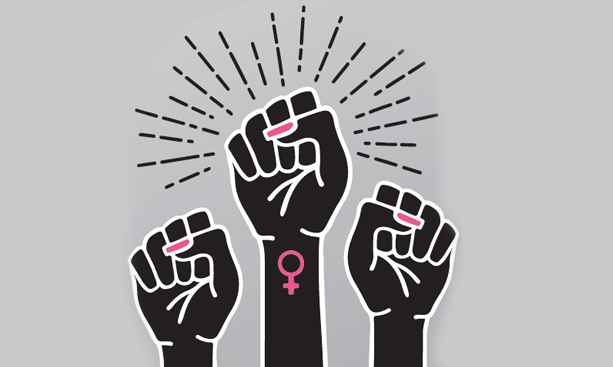The most pronounced silence against femicide and gender-based violence (GBV) is from men who should be allies of women in the cause against the outrage. A local man once cut his lover’s ears and forced her to eat them. This was in 2019. In any likelihood of such violence, one would think this is the worst fate. But, the worst fate is death, at the hands of a man, like when a police officer holding the rank of Sergeant was arrested, suspected to have murdered his wife at Kuke village in Gantsi district this April. She was 51 years old. A BIG GBV PROBLEM! It is more than likely to wake up to news of another woman murdered, raped or both. Each statistic weighs heavily on the heart but doesn’t come as a surprise any more. Each time a woman is murdered, her death takes the form of a headline and subject of public debate, usually for a day or two. It becomes a question of why she was killed rather than who killed her and the justice that should ensue. Then the cycle begins again when another death follows. An aggressive global health pandemic has not put a stop to the violence. In fact, it led to a spike in reported cases. In just three weeks into the lockdown, a total of 114 gender based violence cases were reported to Kagisano Society Women Shelter Project, which Lorato Moalusi of Botswana Gender-Based Violence Prevention and Support Centre described as a ‘sharp increase’. Botswana Deputy Police Chief Dinah Marathe said investigations also revealed that the spiraling rape and defilement offences during the lockdown were committed by perpetrators who are family members of the victims.
COVID ADDS EXTRA PAIN FOR BATSWANA WOMEN
With the detrimental effects of Covid-19 now, the vulnerability of women has heightened in the midst of job losses and pay cuts. In Botswana, over 67% of women have experienced some kind of abuse, which is over double the global average, as revealed by Gender Links Botswana. “Gender-based violence undermines the health, dignity, security and autonomy of its victims, yet it remains shrouded in a culture of silence and normalization,” the organisation has observed. This means the average Motswana woman experiences violent trauma once in their lifetime and that trauma is rarely confronted or reported. With the living reality of gender violence, which can happen anytime and anywhere, we have been in a crisis way before Covid-19 hit. World Population Review ranked Botswana second on ‘Top countries by Highest Rape Crime’. In 2016, the One Billion Rising campaign – a mass action campaign to end violence against women across the world – launched in Chobe and indicated that disturbingly in Botswana, two out of three women are more likely to experience GBV, which represents 67% of women. In our country, we have largely neglected women’s voices as central to their empowerment, which has led to most spaces that they occupy being shrouded by many unspoken truths in order to protect the integrity of the men around them. The failure to prosecute the Sebina incident that gave birth to the “I Shall Not Forget Movement” and the questionable delays in the ongoing defilement case of the Member of Parliament for Nata/Gweta and Polson Majaga provide little assurance that Botswana’s leadership is willing to deal with GBV.
WE NEED TO FIX THIS!
So how can men be better allies to women? They must speak out. Not about how other men who commit such crimes are animals, but how they must play their part in dismantling the toxic masculinity that results in men killing. While the Botswana Police has introduced a toll-free number specifically for gender based issues, this has not helped to decrease the number of reported cases. According to the Pepfar Gender Analysis, there are no systems currently in place in Botswana to monitor compliance with existing gender policies and laws. In addition, inadequate human resource capacity to deliver comprehensive services including legal recourse, and insufficient funding to thoroughly address GBV are huge hurdles. These issues, combined with cultural norms and the economic dependence by women and children on men, make women and girls more vulnerable to GBV, especially in rural areas. Most cases of violence go unreported due to fear of further violence or being mocked by officials. In some instances, GBV cases have been dismissed due to lack of sufficient evidence, despite violence having taken place.
BATSWANA WOMEN’S LIVES MATTER
The murder of African-American George Floyd has sparked the biggest global protests of our lifetime, and women are still hoping and waiting that one of their deaths will finally ignite a revolution that will stop femicide and the violence they fear will happen to them daily. The problem of violent patriarchy is urgent. Currently, #EveryThreeHours – a campaign spearheaded by Nature Inger – is asking all to stand in solidarity with victims as well as all women who fear for their lives daily. This time, our solidarity should translate into action.
